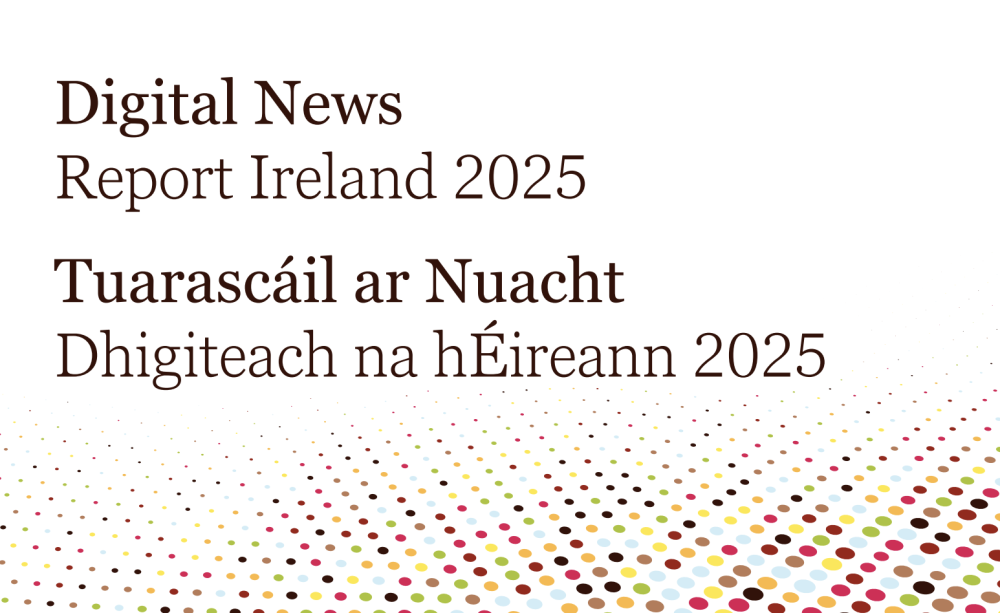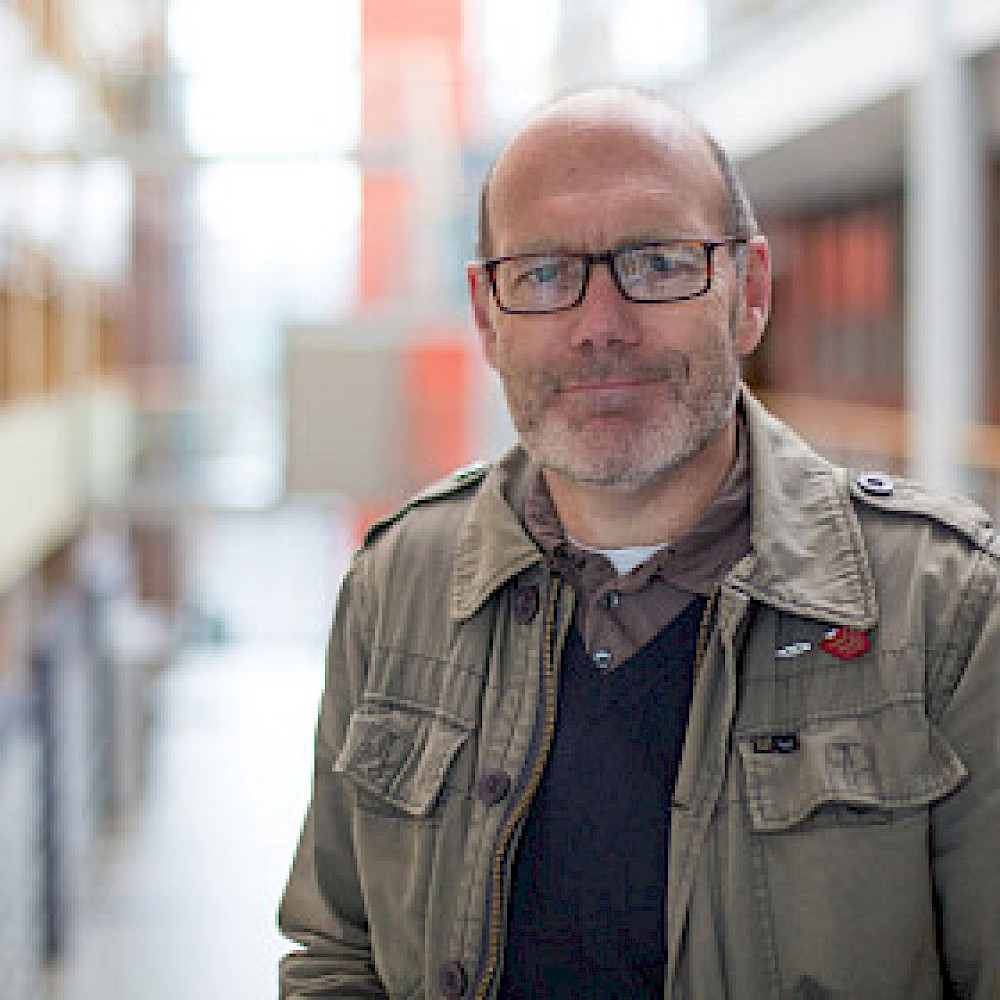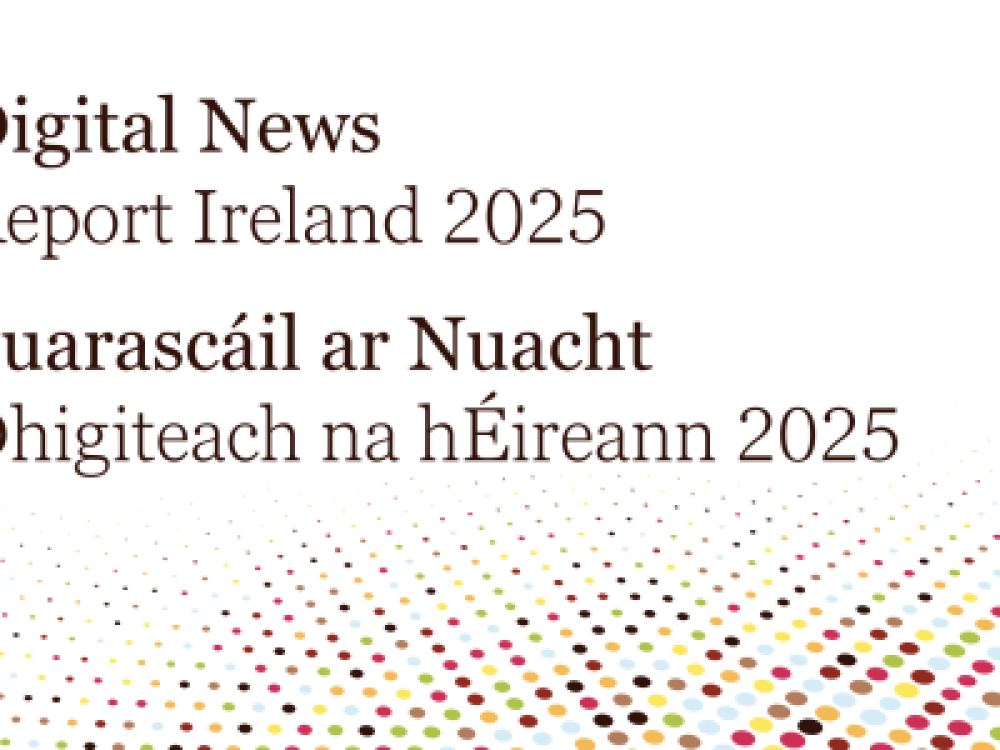The DCU FuJo Institute was delighted to partner once again with Coimisiún na Meán for the publication of the 11th Digital News Report Ireland, released this morning. The report offers vital insights into how Irish people access, trust, and pay for news in a rapidly evolving media environment. This year’s report introduces a refreshed format under the lead authorship of FuJo researcher Dan Lloyd, placing greater emphasis on in-depth analytical essays. These explore emerging themes and situate Irish findings within broader global trends, building on more than a decade of national data collection.
“With eleven years of survey data now available, we’re able to reflect more deeply on long-term shifts in the media landscape,” said Lloyd. “This includes changes in radio and podcast consumption, the continued relevance of legacy media, and evolving attitudes toward paying for journalism.”
The Irish edition forms part of the Reuters Digital News Report, a global project coordinated by the Reuters Institute for the Study of Journalism at the University of Oxford. FuJo researchers contribute to shaping the Irish component by helping design survey questions and identifying key comparative markets, including the UK, the US, and wider Europe.
This year’s survey was conducted online by YouGov (75%) and Cint (25%) between mid-January and the end of February 2025. A representative sample of 2,000 respondents in Ireland was selected using demographic quotas for age, gender, region, and education. The data was then weighted using census and industry benchmarks.
Key Findings – Digital News Report Ireland 2025
-
Interest in news is on the rise: 56% of Irish respondents describe themselves as ‘extremely’ or ‘very’ interested in news—higher than in the UK, US, or European average. However, this marks a drop from 71% in 2015.
-
Strong levels of trust persist: Half of Irish respondents (50%) say they trust the news most of the time, compared to 39% across Europe, 35% in the UK, and just 30% in the US.
-
Most trusted sources: RTÉ News (TV and radio) and local radio and newspapers top the trust rankings at 71–72%, just ahead of The Irish Times and the BBC (both at 70%). Local outlets also show the lowest levels of mistrust—just 10%.
-
Concern about misinformation remains high: 68% of respondents say they’re concerned about real vs. fake information online. X (formerly Twitter) is seen as the top source of misinformation (54%), followed closely by TikTok and Facebook (53%).
-
Digital consumption is led by RTÉ: RTÉ TV News is the most used news source (33% use it three times or more per week), with RTÉ News Online remaining Ireland’s top digital news source at 26%.
-
Paying for news is growing slowly but very low overall: 20% of people in Ireland now pay for online news—a 3% rise on 2024 and double the rate in the UK. Still, 80% continue to access news without paying.
-
Radio remains significant: 36% use radio for news weekly, with 11% naming it as their main source—well ahead of the UK (8%), Europe (7%), and the US (3%). Usage remains strongest among older age groups.
-
Podcast consumption is high: 12% of Irish audiences listen to news podcasts weekly—among the highest rates globally. This places Ireland above the European average (9%) and the UK (7%), but behind the US (15%).
DCU FuJo and Coimisiún na Meán aim to provide a robust evidence base for journalists, editors, educators, policymakers, and anyone invested in the future of Irish media. The 2025 edition builds on a unique dataset of trends and attitudes shaping how Irish people engage with news—online and off.
Publications
Related Projects

The Reuters Institute Digital News Report is the world’s largest international comparative survey of the major trends in digital news consumption. It is widely used by industry, analysts, and researchers across the world. Since 2015, Coimisiún na Meán (formerly Broadcasting Authority of Ireland) has funded FuJo to undertake the analysis for the Irish report. Annual reports are available for: 2023, 2022, 2021, 2020, 2019, 20128, 2017, 2016, and 2015....









